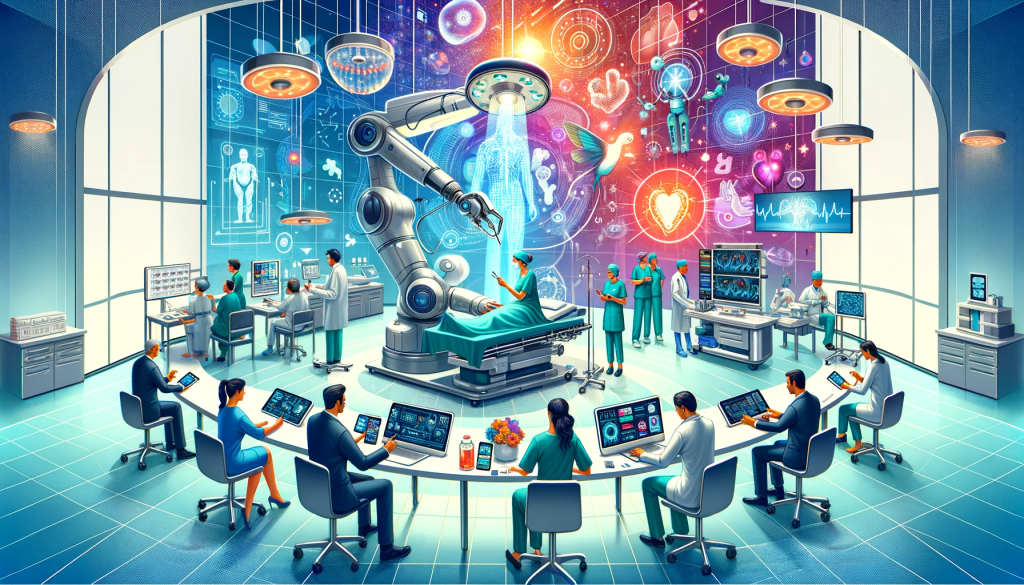The healthcare sector in Australia is witnessing a transformative shift driven by technological advancements. Innovations such as telehealth and robotic surgeries are reshaping healthcare delivery, improving patient outcomes, and creating new career opportunities. In this blog, we will explore these innovations in the context of Australia, focusing on jobs and skills that are integral to their implementation.
1. Telehealth: Enhancing Remote Care
Telehealth, or telemedicine, has gained prominence in Australia, particularly with its role during the COVID-19 pandemic. This involves utilising communication technology to provide medical consultations, diagnosis, and treatment remotely. Careers in telehealth include virtual healthcare professionals, remote patient monitoring specialists, and telehealth coordinators, requiring skills in digital communication and medical technologies.
2. Benefits of Telehealth
Telehealth brings multiple advantages to the Australian healthcare system, including reducing the need for in-person visits, minimising wait times, and lowering healthcare costs. Careers related to telehealth extend to telepsychiatry, remote chronic disease management, and virtual post-surgery care, demanding expertise in remote patient engagement and healthcare technologies.
3. Robotic Surgeries: Precision and Efficiency
Robotic surgeries represent a significant advancement in Australia’s surgical landscape. With the assistance of robotic systems, surgeons can perform complex operations with enhanced precision. Careers in robotic surgeries include robotic surgical technicians, surgical robotics engineers, and experts in minimally invasive procedures, requiring proficiency in robotic technologies and surgical techniques.
4. Advantages of Robotic Surgeries
Robotic surgeries offer improved visualisation, magnification, and stability during procedures in Australia, leading to fewer complications and faster healing. Careers in this field involve robotic surgery training specialists and surgical support staff with expertise in operating and maintaining robotic surgical systems.
5. Artificial Intelligence (AI) in Healthcare
AI is rapidly transforming healthcare in Australia by analysing vast amounts of medical data to support diagnosis and treatment decisions. Careers in AI healthcare solutions include medical data analysts, AI developers for healthcare applications, and specialists in implementing AI-powered chatbots, demanding skills in data science, machine learning, and healthcare informatics.
6. Wearable Health Technology
Wearable devices are empowering individuals in Australia to monitor their health in real-time. Careers in wearable health technology include health app developers, fitness data analysts, and wearable device support specialists, requiring skills in software development, data analytics, and health technology integration.
7. 3D Printing in Australian Medicine
3D printing technology is revolutionising medical practices in Australia, from implants to surgical planning. Careers in 3D printing for medicine include biomedical engineers, medical 3D printing technicians, and surgical planners, demanding skills in biomedical engineering and 3D modeling.
8. Virtual Reality (VR) Therapy
Virtual reality is finding applications in pain management and mental health treatment across Australia. Careers in VR therapy include virtual therapists, VR content developers for healthcare, and VR rehabilitation specialists, requiring skills in psychology, software development, and VR technologies.
9. Nanomedicine Breakthroughs
Nanotechnology is opening new frontiers in drug delivery and diagnostics in Australia. Careers in nanomedicine include nanomedical researchers, drug delivery specialists, and nanoscale sensor developers, demanding expertise in nanotechnology, pharmacology, and sensor technologies.
10. Blockchain for Medical Records
Blockchain technology is enhancing the security of electronic health records in Australia. Careers in blockchain for healthcare include blockchain developers, healthcare data security analysts, and blockchain implementation specialists, requiring skills in blockchain technology and healthcare cybersecurity.
Innovations like telehealth, robotic surgeries, AI, and wearable technology are shaping the future of healthcare careers in Australia. As the healthcare sector evolves, professionals with diverse skills in technology, data analytics, and healthcare management will play a crucial role in ensuring personalised, efficient, and accessible healthcare services for all Australians.

